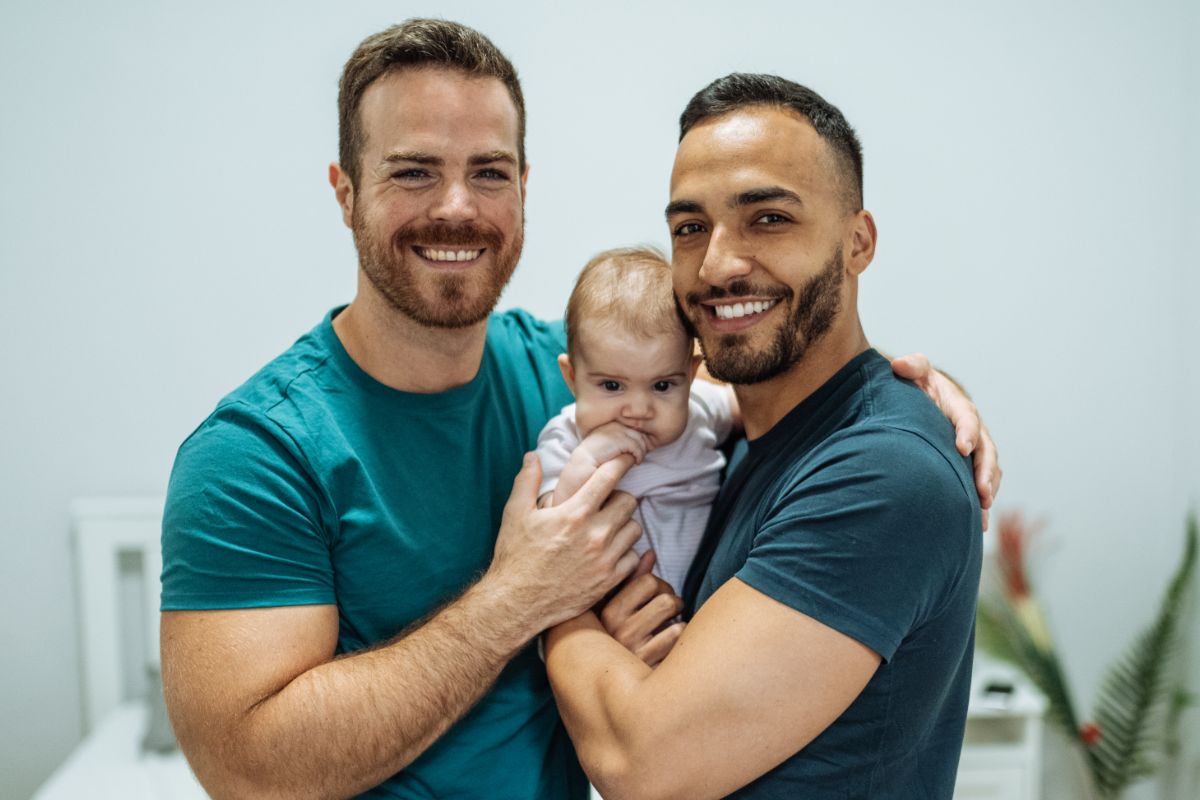There are numerous different ways to become a parent. If you want to become a parent but cannot use traditional methods, adoption can be an outstanding option.
Yet, there are plenty of different forms of adoption to consider, including embryo adoption.

Embryo adoption can help couples to have the child that they have always dreamed of. Essentially, this form of adoption does not involve adopting a child. Instead, it involves the adoption of embryos.
This guide will tell you everything you need to know about embryo adoption.
What Is Embryo Adoption?
When it comes to other forms of adoption, you will traditionally adopt a child or infant. But embryo adoption is a little different. Through this technique, an adoptive mother can carry embryos that have been through IVF (in vitro fertilization).
This is the act of allowing people who have fertilization challenges.
How Does Embryo Adoption Work?
Embryo adoption is a technical procedure. It works by implanting the embryo of another couple during IVF (in vitro fertilization). As a result, the couple can still participate in childbirth.
Before you can go through with embryo adoption, a couple will need to locate these embryos from a donor. They will need to be provided by a healthy donor couple.
How Can You Adopt An Embryo?
Finding the embryo, you will usually need to do this through an embryo adoption agency. There are a few steps to this process, namely:
- First things first, you must find a suitable embryo agency. Every agency will work slightly differently.
- Next, you will need to choose a donor. Agencies will provide all the information that couples need to know about the donors. This includes medical history.
- Couples must also determine whether they want to have an open or closed adoption. Essentially, open adoption means maintaining a degree of communication between the donor and the adoptive parents. Meanwhile, a closed adoption means that the donors won’t receive any communication about the adoption.
- Once donors and a couple of adoptive parents have been matched, they can begin arranging the transfer.
- After this, legal contracts will need to be signed. These contracts will protect the adoptive rights of the couple. Namely, when the donors sign these contracts, they will lose control over their embryos. As a result, they won’t have any parental rights over the child that is born through this adoption technique.
- After all of the details have been ironed out, embryo transfer can be conducted. The adoptive mother will be given the frozen embryos.
- This will then be treated like any other pregnancy. Namely, the adoptive mother will be given prenatal care to ensure that the pregnancy goes as smoothly as possible. The adoptive mother will later be able to give birth to this adopted child.
Why Should You Select Embryo Adoption?
Embryo adoption is primarily aimed at couples that cannot conceive children through traditional methods. Here are some of the reasons why couples may benefit from this style of adoption:
- Other IVF attempts have failed.
- The couple has been experiencing problems with the egg or sperm. For instance, low sperm count will cause problems with conceiving. This makes the couple infertile.
- The couple still wants to get the experience of pregnancy. Adopting a child will not allow them to experience the sensation of pregnancy.
- The couple cannot produce children naturally, such as because they are an LGBT+ couple.
What Is The Cost Of Embryo Adoption?

The exact cost of embryo adoption will differ depending on the agency, as each organization will have different costs. Yet, you should expect to pay anywhere between $10,000 and $20,000.
This can be a rather expensive investment, but many couples that are unable to conceive may be willing to pay these costs. Not to mention, embryo adoption can be cheaper than traditional infant adoption.
Here are just some of the costs that you will need to cover when pursuing this form of adoption:
- Agency fees
- Legal and contract fees
- Screening
What Are The Benefits Of Embryo Adoption?
Now that you know a little more about embryo adoption, you may be wondering how it can benefit you.
These are just some of the advantages that you should take into account when reviewing whether or not embryo adoption is the right choice for you:
- If a couple is attempting to conceive a child but is experiencing fertility issues, embryo adoption can be a great alternative.
- Embryo adoption can have high success rates, as the survival rates are decent.
- Adoption can be an expensive procedure, but embryo adoption is typically cheaper than other varieties.
- The existence of legal contracts will protect the adoptive parents.
- Waiting lists are minimal or non-existent. As a result, you can often complete embryo adoption within a year. This makes it shorter than other kinds of adoption.
- An adoptive mother can still go through with a pregnancy. As a result, if a mother wants to experience pregnancy, this can be better than adopting an infant.
- It is possible to have related siblings through this process. This is because numerous embryos are often on offer.
- This adoptive process is medically safe.
Frequently Asked Questions
What Will A Baby Look Like If An Embryo Donor Has Been Used?
The DNA of the baby will come from the donors of the egg and sperm. As a result, the baby will most look like the donors. The baby won’t share any DNA with the adoptive mother, so it is unlikely to look like them.
Why Should You Adopt An Embryo?
The adoption of embryos is primarily aimed at people who are unable to conceive through other methods. This method allows adoptive parents to raise an adoptive child whilst also giving birth to them.
Final Thoughts
For couples that cannot naturally conceive, adoption is a wonderful way of extending your family. There are lots of different forms of adoption that should be taken into consideration, including embryo adoption.
Hopefully, this guide has made you more informed about embryo adoption so that you can better decide whether or not this form of adoption is right for you!
If you enjoyed this article, you might like our post ‘What Is An Open Adoption?‘.
- 10 Best States For Families - March 6, 2023
- Can A White Couple Adopt A Black Baby? - March 1, 2023
- Best DNA Tests For Adoptees - February 28, 2023










